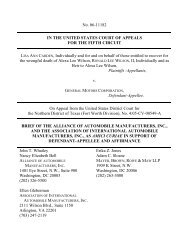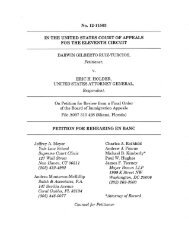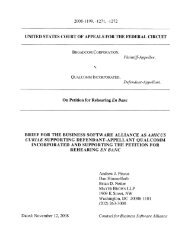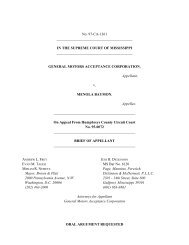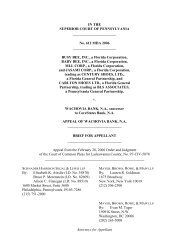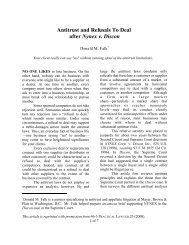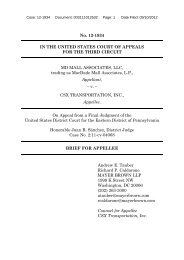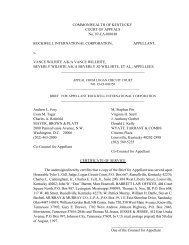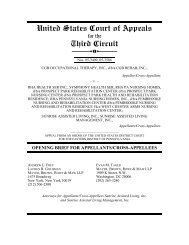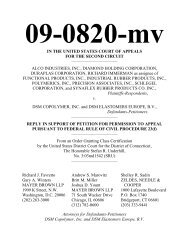No. 5-99-0830 IN THE APPELLATE COURT OF ... - Appellate.net
No. 5-99-0830 IN THE APPELLATE COURT OF ... - Appellate.net
No. 5-99-0830 IN THE APPELLATE COURT OF ... - Appellate.net
Create successful ePaper yourself
Turn your PDF publications into a flip-book with our unique Google optimized e-Paper software.
loss condition. Instead of requiring proof of any real breaches of contract, the court took yet<br />
another shortcut, allowing plaintiffs to obtain a $450 million verdict largely on the strength<br />
of anecdotes and glib generalizations about the general quality of non-OEM parts offered<br />
by bodyshop owners and plaintiffs’ paid experts. These and other errors detailed in Part II<br />
below compel reversal of the breach of contract judgment. Because the errors themselves<br />
demonstrate the impossibility of trying this case on a classwide basis, they also compel<br />
decertification of the class.<br />
As demonstrated in Part III below, the $730 million ICFA judgment must also be<br />
reversed. The circuit court tried to resolve the manageability problems inherent in a<br />
nationwide consumer fraud class action by applying the Illinois Consumer Fraud Act to the<br />
claims of all class members. But, as the Fourth District recently concluded in Oliveira v.<br />
Amoco Oil Co., 311 Ill.App.3d 886, 726 N.E.2d 51 (4th Dist. 2000), the General Assembly<br />
never intended ICFA to govern transactions in other states. Furthermore, by using ICFA to<br />
effectively outlaw the practice of specifying non-OEM parts, the circuit court<br />
unconstitutionally interfered with the laws of Illinois’ sister states, the majority of which<br />
expressly allow insurance companies to specify non-OEM parts.<br />
A separate and independent reason for vacating the ICFA judgment — and, indeed,<br />
for entering judgment on that claim in favor of State Farm — is that the circuit court failed<br />
to properly apply ICFA to the facts of this case. Among other things, the court applied the<br />
wrong standard of proof, using a “preponderance of the evidence” standard despite this<br />
Court’s holding in General Motors Acceptance Corp. v. Grissom, 150 Ill.App.3d 62, 65 (5th<br />
Dist. 1986), that ICFA requires proof by “clear and convincing” evidence. Furthermore,<br />
-29-



